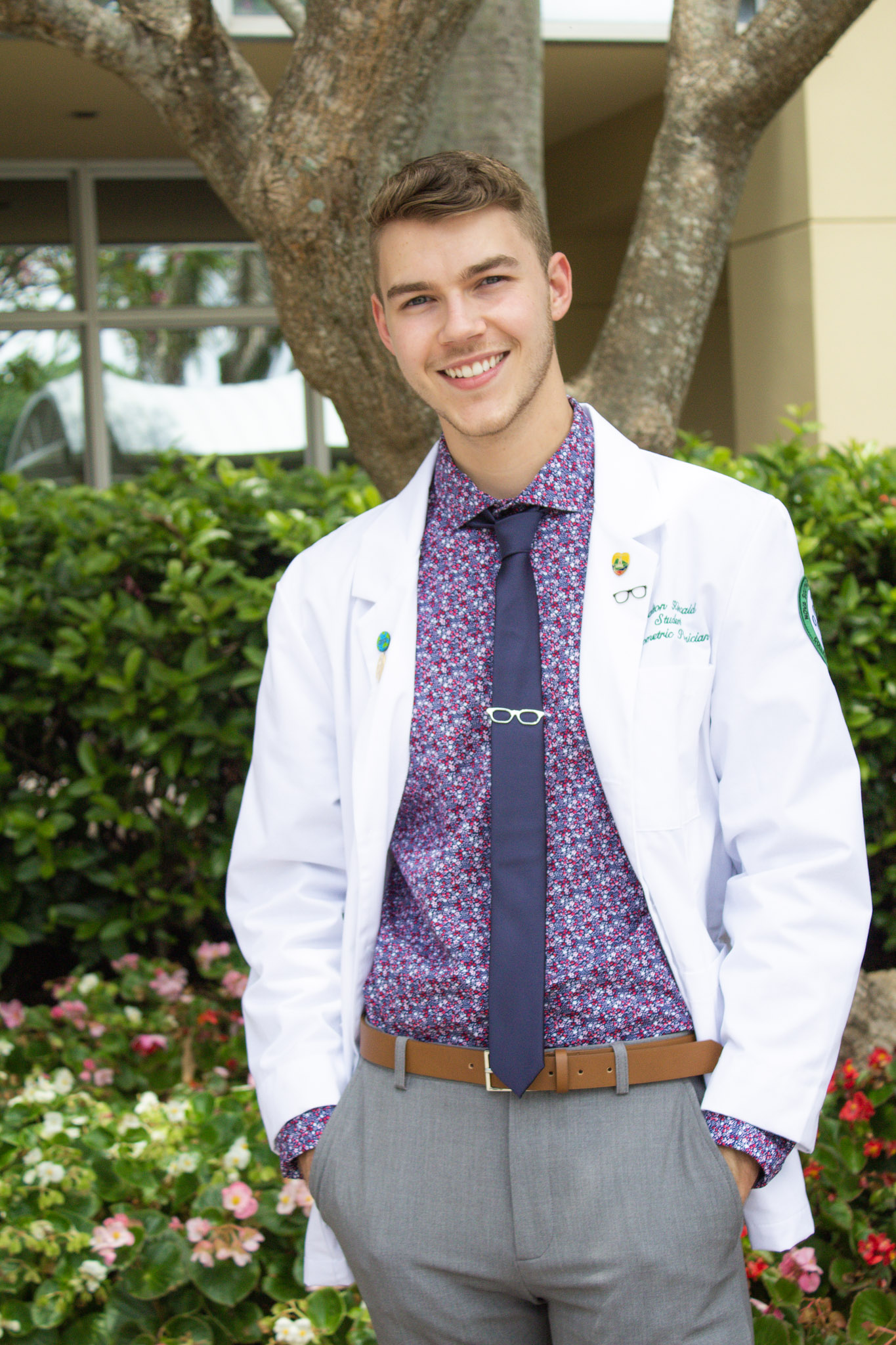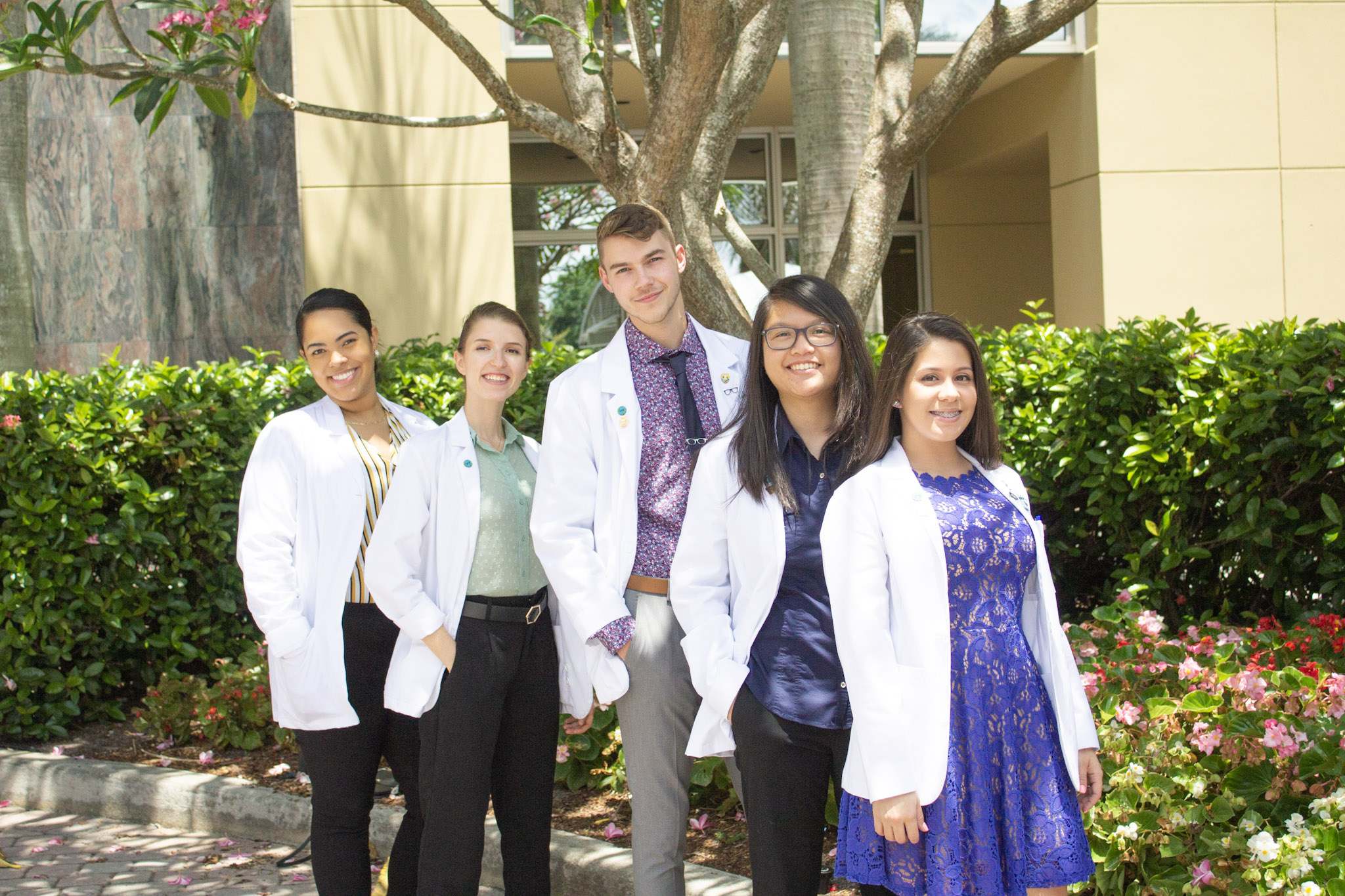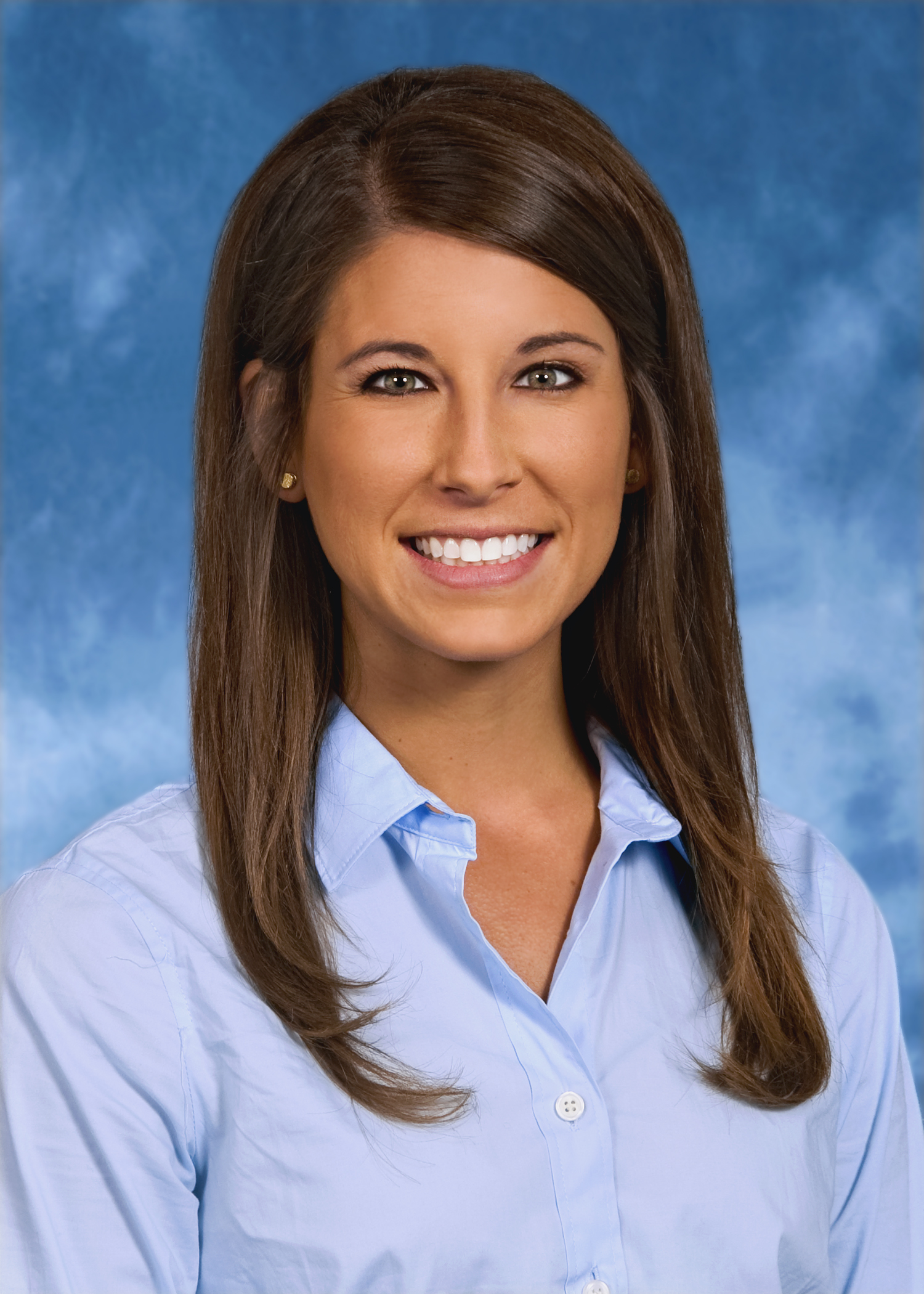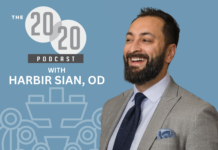Podcast: Play in new window | Download
Subscribe: Apple Podcasts | Google Podcasts | Spotify | Amazon Music | Android | RSS

Life as an optometry school student is intense. Long hours of coursework and studying; honing patient care skills and participating in community service. But for Dalton Kincaid, a rising 2nd year student at NOVA Southeastern University College of Optometry, getting involved both on and off campus was a passion well worth undertaking. In addition to being the Vice President of SVOSH on campus, Kincaid founded a new club, Spectrum, with the help of faculty sponsor Dr. Felicia Timmermann this year. It is the first LGBTQ community club on campus and he shares the path to how this organization was formed and how it’s making a difference already in this podcast.
Kincaid discovered his interested in optometry in a nontraditional way. He attended college at The Ohio State University and studied Spanish as his major. He knew that he wanted to utilize his Spanish degree in a career in healthcare so he started looking for a job in research while he was an undergrad student. The research position he found was actually an optometry research position, investigating ciliary muscle development and accommodative spasm, and the relationship between dopamine and myopia. He was hooked. To further explore his career choice, he became very active in the pre-optometry club, traveling to perform vision screenings around the country. As a Spanish major he studied abroad in Chile and he worked in an eyecare clinic in that country.
As a student at OSU, Kincaid had a strong support system within the LGBTQ community. With the stresses of moving across the country and enrolling in a challenging curriculum, he found himself drawn to creating that sense of acceptance and community at NOVA. The idea was born for the creation of Spectrum, an LGBTQ and allies’ organization, open to all health professionals on NOVA’s campus. The group is focused on supporting students, administration, and the local LGBTQ community through healthcare outreach. Kincaid was driven for students to “know that they have a welcoming group of friends and support system [when they arrive on campus].”

One of Spectrum’s primary goals is to collaborate with local organizations that host healthcare events for the LGBTQ community to provide free vision screenings. Members are also working on recommending improvements to patient services to make healthcare at the college more inclusive. For example, they are working on updating patient intake forms with gender neutral pronouns and providing education and sensitivity training on how to best address members of the transgender community so they feel welcome and accepted. They have hosted guest speakers from within the local community to share their experiences with local healthcare and how interactions could be improved. One of Kincaid’s goals is to help graduating student ODs become certified as Safe Place providers so that members of the LGBTQ community can find them online and know that they provide an office atmosphere of acceptance. Large numbers of the transgender community have a fear of going to the doctor because of misgendering or interactions with healthcare providers that made them feel uncomfortable or insulted. Spectrum aims to make students more culturally competent and share the knowledge about how to address patients and how to avoid appearing insensitive or outright rude in those interactions.
The process to found the new Spectrum club started in the fall when Dalton was a 1st-year student. He shares the steps to initiating the process in this podcast:
- Find a faculty advisor: Kincaid linked up with Dr. Felicia Timmermann, Chief of the Eyecare Institute at KID. A graduate of the Illinois College of Optometry, Dr.

Felicia Timmermann, O.D., FAAO Timmermann completed her residency in pediatric optometry at the Cincinnati Children’s Hospital Medical Center. She helped Kincaid navigate faculty and administrative support for the new club on campus.
- Create an executive board: Kincaid encourages optometry students interested in starting their own club to find a group of like-minded, passionate students to team with. The process is challenging, and being able to work together and share responsibilities helps reduce the stress of being a full-time student and launching a new-start project at the same time.
- Create a charter for the club and a vision and mission of the unmet need it would fulfill on campus.
- Present to the student council. Once approved, the new club will have a probationary period to drive interest and participation on campus before it is voted into permanent fixture as a club on campus.
- Obtain a petition with at least 100 signatures from students supporting the formation of the new club. Spectrum achieved over 100 signatures in just 1 day from among his 1st year classmates.
- Hold an informative meeting to share the club with the broader campus
- Organize meetings and local events
- At the end of the probationary period, present again to the student about what the club achieved and become voted into acceptance as an official campus club.
Want to know more about Spectrum or how you can go about creating a new club on campus? Reach out to Kincaid on Facebook @SpectrumNSUCO.






